Given: Throwable is Exception's superclass.
When I read texts on writing your own 'exceptions', I see examples of Throwable being used in the catch block and other texts show new Exception() being used in the catch block. I have yet to see an explanation of when one should use each.
My question is this, when should Throwable be used and when should new Exception() be used?
Inside the catch or else block using either:
throw throwable;
or
throw new Exception();
